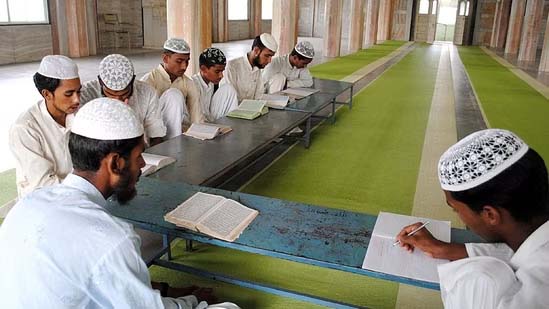In a landmark ruling on Friday, the Lucknow bench of the Allahabad High Court deemed the Uttar Pradesh Board of Madarsa Education Act, 2004, unconstitutional and against the principles of secularism. This directive mandates the state government to integrate students from madrasas into mainstream schools, potentially impacting the lives of numerous students in India’s most populous state.
A bench comprising Justices Vivek Chaudhary and Subhash Vidyarthi issued the ruling in response to a petition by Anshuman Singh Rathore, a practicing attorney, contesting the constitutionality of the act.
According to the court, the state lacks the authority to establish a board exclusively for religious education, as it goes against the secular ethos enshrined in the Indian Constitution.
“The state cannot favor one religion over others in educational matters, as it contravenes the principles of secularism, a fundamental aspect of India’s constitutional framework,” remarked the bench in its comprehensive 86-page verdict.
This decision stands to impact approximately 200,000 students currently enrolled in 16,500 recognized and 8,500 unrecognized madrasas across Uttar Pradesh, a state with a Muslim population comprising 19.26% of its total populace.
The Samajwadi Party, which introduced the act in 2004, asserted that the court’s declaration of its unconstitutionality was based on misrepresented facts by the government.
In its detailed verdict, the court emphasized that any governmental policy dividing society along religious lines violates constitutional principles.
“The objectives of the act fail to justify the necessity for a separate education board catering to a specific religion, especially when there are existing secular education boards in the state,” the court stated.
Highlighting the limitations of madrasa education, the court noted the absence or optional nature of modern subjects and the exclusive focus on Islam’s teachings.
Contrary to the state’s duty to provide secular education, the Madarsa Act primarily aims to promote Islamic education, which the court deemed divisive and unconstitutional.
Furthermore, the court emphasized the state’s obligation to provide universal and quality education, asserting that teaching only one religion without comprehensive study in modern subjects falls short of these standards.
Therefore, the education imparted in madrasas was deemed neither universal nor of high quality, violating constitutional provisions.
Samajwadi Party spokesperson Ashutosh Varma urged the government to review the ruling and appeal to the Supreme Court to protect minority education rights in the state.




